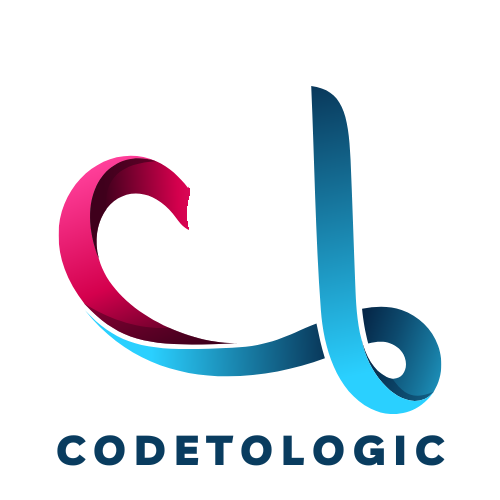27 Jul
Have you ever contacted an online assistant, spoken to your phone, or searched Google and gotten a logical response?
These kinds of interactions are supported by the fascinating discipline of natural language processing, or NLP for short.
Natural language processing, also called NLP, is the science behind computers to understand, interpret, and talk back to human language in a way that is close to natural.
It is very similar to getting computers to recognise human language, which in turn makes the interaction that much more meaningful and engaging.
The goal of NLP is to get machines to recognise these small yet profoundly significant differences in order to allow the machines to give the right answers to questions, for which the phrases and even the feelings may be incorporated, the use of the same words, which is the case.
This is the reason and the main thing that it is not necessarily altogether unconventional to consider NLP. It is a very complex matter to study a language, as it is full of got some and may be unique in meaning, emotional weight, and subsidiary meanings.
One thing that can be pointed out is the difference in our own what it can refer to “cool.” For example, the temperature is what “cool” could mean in one context, but it is also the way one might use “cool” as a synonym for something being impressive.

The goal of NLP is to get machines to recognise these small yet profoundly significant differences in order to allow the machines to give the right answers to questions, for which the phrases and even the feelings may be incorporated, the use of the same words, which is the case.
This is the reason and the main thing that it is not necessarily altogether unconventional to consider NLP.
Why is NLP important?
These days we are in almost permanent interaction with digital devices.
Right from virtual assistants such as Siri and Alexa to smart chatbots on websites, NLP has acquired a paramount role in the improvement of our daily life through technology.

Here are a few reasons why NLP is so important:
1. Improving Accessibility
NLP has made technology users more inclusive to include people with disabilities and those with limited technical skills.
For example, a person with limited mobility can use voice commands to operate a smartphone or computer, which increases their awareness of freedom.
2. Breaking Language Barriers
Translation tools that are driven by NLP, for example, Google Translate, work to let people from various places of the world talk even if they speak different languages.
This language bridge facilitates a cultural exchange and presents ideas which are not bound by the limits of a language.
3. Streamlining Communication
With NLP, businesses can not only be able to handle the customer queries but also summarise the information and even compose emails so that the other staff can concentrate more on brainstorming and creativity.
4. Personalising User Experience
NLP allows devices to understand your preferences and respond accordingly.
For example, when a music app identifies a certain genre as your favourite, it will suggest some new songs you might be interested in.
This personalised experience contributes to smoother and more engaging technology interactions.
The Benefits of NLP for Businesses
As an organisation uses NLP, customer relationships may be deepened, business processes may be standardised, and problem-solving skills may be enhanced.

With the following you are:
1. Careful Listening to the Customer
By using these techniques, a company will obtain additional information about consumers, as the development of virtual assistants persuades the customers to stay.
The consequence of this is that the customer will be more satisfied, and there will be faster responses.
2. Bettering the Issue of Efficiency
ML enhancements in automation dull tasks such as employees having to manually order emails or answer usual questions. These ways enable workers to devote time to their responsibilities.
This means workers are more productive and satisfied as well.
3. Collecting customer Insights
The use of NLP is also capable of analysing sentiment not only from reviews or comments from customers but also social media to give a major indication of customer sentiment.
This will be useful for business improvement in the case of customer needs and preferences, which in turn will help in the production of more convincing products and services.
4. Reducing Complexity
In another advantage, NLP automatically clears the video from the last table and performs categorisation, which would otherwise be slow and tedious, making it possible to manage large amounts of data quickly.
The Future of NLP: What’s Next?
As things develop in technology, NLP is expected to have a higher degree of sophistication or become more advanced, which eventually leads to lots of exciting stuff to come.

Here are some trends we might see:
1. More Accurate Translations
NLP’s success in implementing this aspect by exposing the capacity to translate languages will speed the whole process of interaction to be carried out across the borders.
We may even make a step closer to real-time translation, making the bridge of communication language barriers a reality.

2. Enhanced Emotional Understanding
Sentiment analysis is now a tool that computers can use to identify emotions in written texts as well as speech.
As a result, they will know almost perfectly how to show empathy to virtual assistants, who can then respond with the kind of tone they feel like.

3. Real-Time Captioning in Presentations
Natural language processing will most likely lead to better accessibility features, which would include real-time captioning as well as detailed voice control and even text-to-voice technology to help people with disabilities.

4. Adaptability in Customisation
As NLP is advancing, it will give the opportunity for even more personalised user experiences.
The apps and devices will update themselves along with our individual characteristics, from our habits to our preferences and needs, which will make interactions more smooth and intuitive.

Wrap-Up
Moreover, with the advancement of technology to interact with our messages, which become more intuitive, accessible, and enjoyable with NLP.
NLP is in things like voice assistants, chatbots, filters, and translators that we already use in our daily lives.
As this technology advances to a point of being closer to natural human-like interactions with devices, we will see a new dawn of computers understanding us as we communicate with each other.

